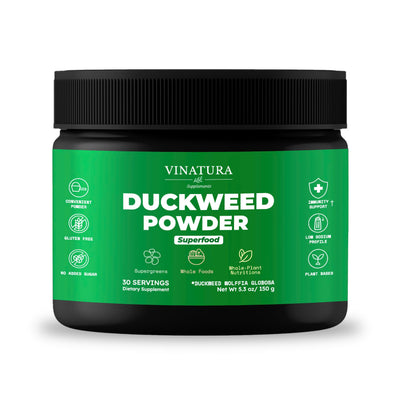
Lactobacillus Acidophilus And Bulgaricus Benefits & Side Effects
The primary difference between Lactobacillus Acidophilus and Bulgaricus lies in their native environments and distinct characteristics. This comprehensive document will delve into a detailed discussion about their sources, benefits, potential side effects, interactions, and usage guidelines. By understanding this information, individuals can harness the unique benefits of Lactobacillus Acidophilus and Bulgaricus more effectively, optimizing their impact on overall health and well-being.
Before exploring further, please read the disclaimer located at the end of this webpage.
What Is Lactobacillus Acidophilus And Bulgaricus?
Lactobacillus Acidophilus and Lactobacillus bulgaricus are both types of bacteria that fall under the giant umbrella of the lactobacillus family. These bacteria are known as probiotics, beneficial organisms that promote health within the host organism [7].
Lactobacillus Acidophilus And Bulgaricus Benefits
Probiotics that include Lactobacillus Acidophilus and Bulgaricus are frequently combined with probiotic strains that enhance the growth and vitality of beneficial bacteria in the digestive system, providing distinct health advantages [5].
Lactobacillus Acidophilus and Bulgaricus are Lactobacillus strains that, beyond their well-known gut health benefits, confer several lesser-known advantages that contribute to overall well-being.
These strains play a vital role in synthesizing vitamins and enhancing nutrient absorption in the body, maximizing the benefits of consumed food. Another remarkable benefit is their ability to alleviate pain directly interacting with host cells [6].
In addition to their shared benefits, both Lactobacillus Acidophilus and Lactobacillus Bulgaricus offer additional effects:
- Women are particularly intrigued by Lactobacillus Acidophilus due to its remarkable skin-protective and anti-aging properties [2, 3, 4].
- While the available studies are limited, evidence suggests that lactic acid bacteria, particularly L. bulgaricus, may possess anti-cancer properties [1].
Lactobacillus Acidophilus And Bulgaricus Side Effects
There is no published research on the potential side effects of Acidophilus and Bulgaricus. While rare, there have been isolated reports of allergic reactions, including symptoms such as redness, itching, and difficulty breathing.
While generally safe to consume, Lactobacillus Acidophilus and Bulgaricus can interact with certain medications, specifically antibiotics and antifungal drugs.

How Should You Take Lactobacillus Acidophilus And Bulgaricus?
Lactobacillus Acidophilus and Bulgaricus can be consumed in various ways. They are naturally present in some dairy products, particularly yogurt, and thus can be easily incorporated into your daily diet.
However, if a higher dosage is needed or preferred, these probiotics come in supplement forms such as powders or capsules. The generally recommended daily dosage stands at around 3 billion CFU. It's essential to remember that the key to successful supplementation is regular intake. Try to keep consistency to get maximum benefits to your health.
Depending on personal preference and gastrointestinal tolerance, these supplements can be taken with or without food. The most important aspect is to ensure regular and ongoing consumption, allowing these beneficial bacteria to proliferate and exert their health effects.
What Happens If You Miss A Dose Of Lactobacillus Acidophilus And Bulgaricus?
If you miss a dose of Lactobacillus Acidophilus and Bulgaricus, there is no need to panic. These probiotics are generally safe, and missing a dose is only temporary.
If you realize you have missed a dose, promptly take it as soon as you remember and resume your regular supplementation schedule.
You should skip the missed dose if it's nearing your following scheduled supplementation. It's crucial to avoid doubling up on doses.
What Happens If I Overdose On Lactobacillus Acidophilus And Bulgaricus?
While it's unlikely to harm you, overdosing on Lactobacillus Acidophilus and Bulgaricus can lead to discomfort and digestive upset, such as bloating and diarrhea. If you accidentally take too much, do not double the dosage in subsequent intakes.
If you experience severe or persistent side effects, such as allergic reactions, immediately stop supplementation and consult a healthcare professional.
Frequently Asked Questions
What Is the Difference Between Lactobacillus Acidophilus And Lactobacillus Bulgaricus?
The primary difference between Lactobacillus Acidophilus and Lactobacillus Bulgaricus lies in their fermentation pH and the environments in which they thrive. Lactobacillus Acidophilus prefers a more neutral pH environment of around 7.5, unlike Lactobacillus bulgaricus, which adapts to a slightly acidic pH, typically around 5.8 to 6 [8].
Conclusion
In conclusion, both Lactobacillus Acidophilus and bulgaricus are integral in promoting gut health and overall wellness. Despite their shared family, these probiotics exhibit distinct characteristics and benefits owing to their different native environments and fermentation pHs. Understanding these differences is critical to harnessing their benefits effectively. By carefully incorporating these probiotics into your daily routine, you can optimize their healthful impact and enhance your well-being.
References
- [1] Gilliland, S. E. (1990). Health and nutritional benefits from lactic acid bacteria. FEMS Microbiology Letters, 87(1-2), 175–188. https://doi.org/10.1111/j.1574-6968.1990.tb04887.x
- [2] Im, A-Rang., Kim, H. S., Hyun, J. W., & Chae, S. (2016). Potential for tyndalized Lactobacillus acidophilus as an effective component in moisturizing skin and anti-wrinkle products. Experimental and Therapeutic Medicine, 12(2), 759–764. https://doi.org/10.3892/etm.2016.3406
- [3] Im, A-Rang., Lee, B., Kang, D.-J., & Chae, S. (2018). Skin Moisturizing and Antiphotodamage Effects of Tyndallized Lactobacillus acidophilus IDCC 3302. Journal of Medicinal Food, 21(10), 1016–1023. https://doi.org/10.1089/jmf.2017.4100
- [4] Lim, H. Y., Jeong, D., Park, S. H., Shin, K. K., Hong, Y. H., Kim, E., Yu, Y.-G., Kim, T.-R., Kim, H., Lee, J., & Cho, J. Y. (2020). Antiwrinkle and Antimelanogenesis Effects of Tyndallized Lactobacillus acidophilus KCCM12625P. International Journal of Molecular Sciences, 21(5), 1620. https://doi.org/10.3390/ijms21051620
- [5] Oliveira, R. P. de S., Torres, B. R., Perego, P., Oliveira, M. N. de, & Converti, A. (2012). Co-metabolic models of Streptococcus thermophilus in co-culture with Lactobacillus bulgaricus or Lactobacillus acidophilus. Biochemical Engineering Journal, 62, 62–69. https://doi.org/10.1016/j.bej.2012.01.004
- [6] Patten, D. A., & Laws, A. P. (2015). Lactobacillus-produced exopolysaccharides and their potential health benefits: a review. Beneficial Microbes, 6(4), 457–471. https://doi.org/10.3920/bm2014.0117
- [7] Sasaki, Ito, T., & Sasaki, Y. (1993). The complete genome sequence of Lactobacillus bulgaricus reveals extensive and ongoing reductive evolution. FEMS Microbiol. Rev, 12(24).
- [8] Wheater, D. M. (1955). The Characteristics of Lactobacillus acidophilus and Lactobacillus bulgaricus. Journal of General Microbiology, 12(1), 123–132. https://doi.org/10.1099/00221287-12-1-123
Author

Product Disclaimer
Including an ingredient or study does not evaluate, endorse, or recommend any Vinatura product or any third-party product. Some ingredients discussed may not be used in any Vinatura product.
The content of the articles has not been evaluated by the Food and Drug Administration (FDA) and is not intended to promote or endorse any specific product. Any products sold on this website are not intended to diagnose, treat, cure, or prevent any disease.
Opinions and Endorsements
Any claims, statements, or opinions expressed in the articles are those of the author(s) and do not necessarily reflect the views or opinions of the manufacturers of the dietary supplement products. The products sold on this website are separate from the content of the articles and are not directly endorsed or associated with the information presented here.
Liability Disclaimer
The author(s) of the articles, website, and manufacturers of the dietary supplement products do not assume any liability for any potential consequences arising from the use of the information provided in the articles. Ingredient effects, dosages, and safety vary by individual, formulation, and context; some ingredients interact with medications or may be unsuitable during pregnancy or lactation. It is recommended that individuals consult with a qualified healthcare professional before making any dietary or lifestyle changes, including the use of dietary supplements.
Product Usage
Please refer to the product labels and packaging for specific usage instructions and guidelines for the dietary supplement products sold on this website.
Customer Support
For any concerns or questions regarding the dietary supplement products, please contact our customer support team, who will be more than happy to assist you.





Leave a Comment
Be the first to comment.
What do you think?